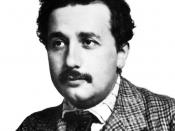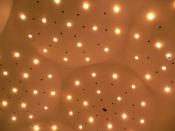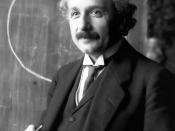Memory, Learning and Intelligence
Psychologists have been analysing and debating the nature of memory, learning and intelligence since the 19th century. It has been argued that learning and memory are virtually inseparable, and furthermore, an individuals proficiency at learning is generally considered to depend upon their level of intelligence, but how do we measure this? How do we compare Albert Einstein (who failed his early exams), with a musician or a composer, for example, Yehudi Menuhin or Ludwig van Beethoven? If we accept that an 'Einstein' intelligence differs from a 'Beethoven', then does the way each stores information differ, too? And how does this affect the way they learn? The following report explores some of the different theories of Memory, Learning, Intelligence and Learning Styles.
Memory
Theories regarding memory have been around for as long as we can remember. Aristotle, c350bc, concluded that memory was:
"... neither Perception nor Conception, but a state or affection of one of these, conditioned by lapse of time."
(Ross, 1930)
William James (1890) was amongst the earliest modern psychologists to investigate memory in humans using a scientific approach. He proposed that there were two types of memory, Primary and Secondary:
"An object which is recollected, in the proper sense of that term, is one which has been absent from consciousness altogether... It is ... recalled ... from a reservoir in which ... it lay buried and lost from view. But an object of primary memory is not thus brought back; ... In fact it comes to us as belonging to the rearward portion of the present space of time ..." (James, 1890, Vol 1 Chap 16)
The dual-store model was popular for several decades, until in 1956 Donald Broadbent used information processing terms to formulate the multi-store memory model, consisting of sensory, short-term...


